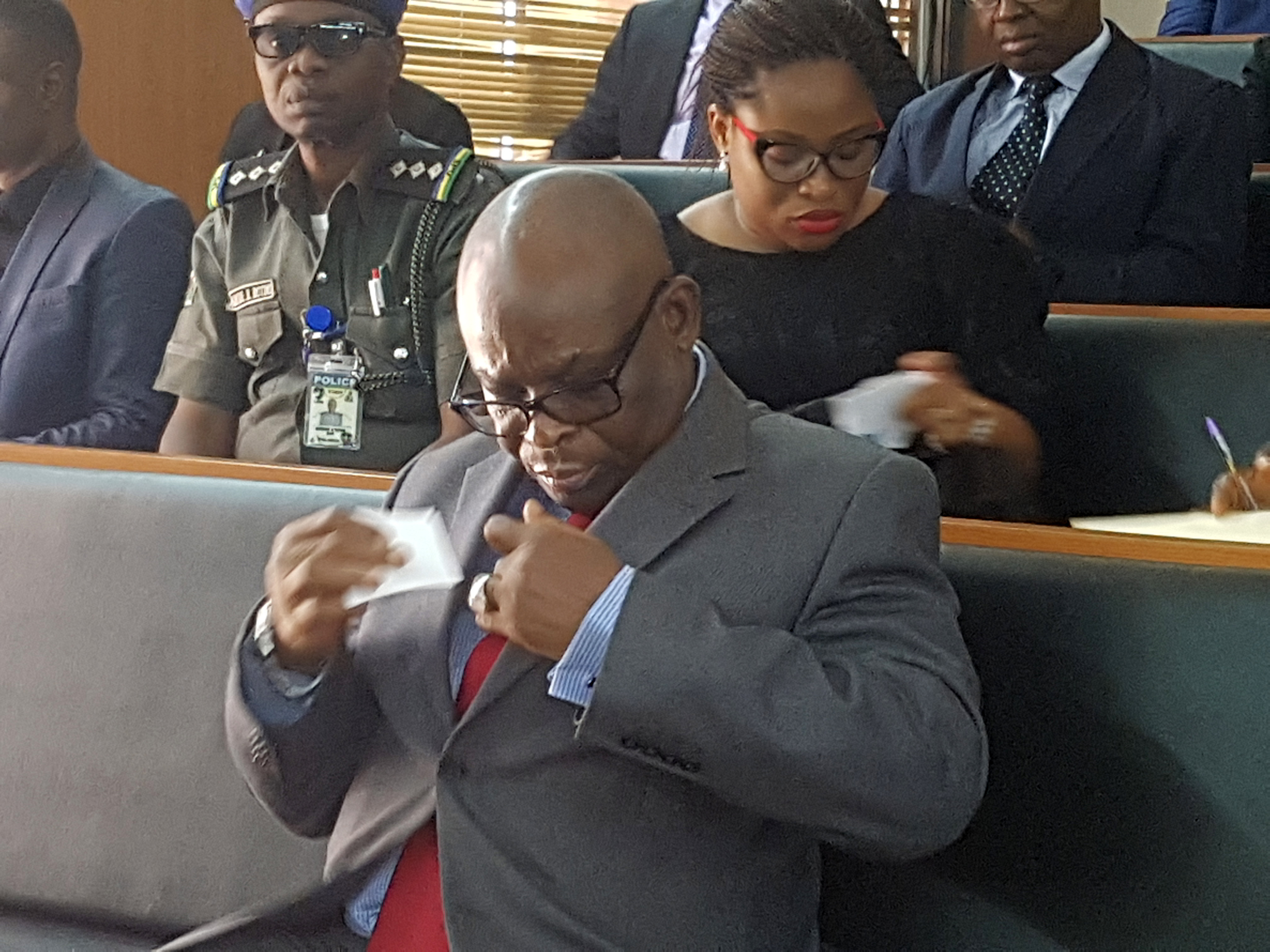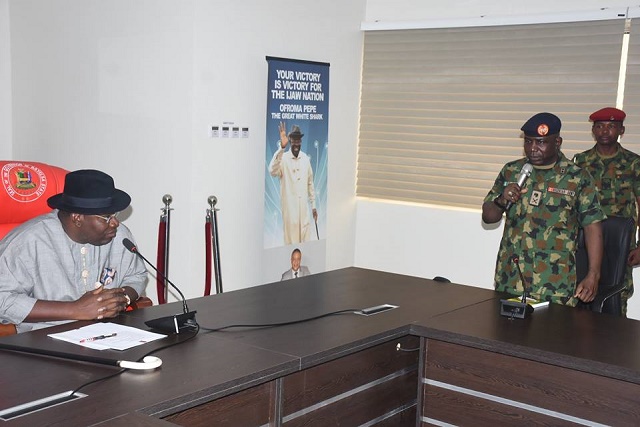The National Judicial Commission (NJC) has recommended Walter Onnoghen, chief justice of Nigeria (CJN), for compulsory retirement, TheCable understands.
After deliberating on the petition filed against him by the Economic and Financial Crimes Commission (EFCC) on Wednesday, members of the NJC unanimously agreed that Onnoghen has lost the moral authority to continue as CJN with the litany of allegations bordering on misconduct.
The NJC — which handles disciplinary issues of judicial officers — sat under the interim leadership of Umaru Abdullahi, former president of the court of appeal, who had to act because Onnoghen was already under suspension.
The council also concluded that Tanko Muhammad did not commit any offence by making himself available to be sworn in as acting CJN without the recommendation of the NJC.
Advertisement
These recommendations have been passed to President Muhammadu Buhari for approval, Soji Oye, the council’s director of information, informed the media on Wednesday, although he did not make the details public.
WHAT NEXT NOW?
TheCable can report, however, that the president still has to seek the approval of the senate for Onnoghen to be retired if he wants to follow the CJN route.
Advertisement
This will require two-thirds majority of the upper legislative chamber.
Section 292 (1) of the 1999 constitution says a “judicial officer shall not be removed from his office or appointment before his age of retirement except in the following circumstances – (a) in the case of – (i) Chief Justice of Nigeria… by the President acting on an address supported by two-thirds majority of the Senate.”
Onnoghen is also undergoing trial at the Code of Conduct Tribunal (CCT) over allegations of false asset declaration — and if found guilty, he could be removed.
ROAD TO RETIREMENT
Advertisement
Buhari suspended Onnoghen on January 25, 2019 following an order made by the CCT.
TheCable had reported how the Anti-Corruption and Research Based Data Initiative (ARDI), a civil society group, launched the legal move to remove Onnoghen.
The group had filed a petition against him at the Code of Conduct Bureau (CCB) over alleged false declaration of assets.
The CCB is empowered by the constitution to investigate public officers, after which it would forward its findings to the appropriate body for trial if the allegations are confirmed.
Advertisement
It had listed a number of allegations against Onnoghen — notably false declaration of assets.
Advertisement
3 comments







We don’t have a judiciary, I knew this will b the outcome of all their investigation
The president does not need the approval of the Senate in this instance to approve the removal of Onnoghen.
Please see below for reference on the Constitution.
Section 292(1a) is the circumstance where the Senate is needed.
Section 292(1b) is the circumstance where the president can remove the CJN on NJC’s recommendation.
292. (1) A judicial officer shall not be removed from his office or appointment before his age of retirement except in the following circumstances –
(a) in the case of –
(i) Chief Justice of Nigeria, President of the Court of Appeal, Chief Judge of the Federal High Court, Chief Judge of the High Court of the Federal Capital Territory, Abuja, Grand Kadi of the Sharia Court of Appeal of the Federal Capital Territory, Abuja and President, Customary Court of Appeal of the Federal Capital Territory, Abuja, by the President acting on an address supported by two-thirds majority of the Senate.
(ii) Chief Judge of a State, Grand Kadi of a Sharia Court of Appeal or President of a Customary Court of Appeal of a State, by the Governor acting on an address supported by two-thirds majority of the House of Assembly of the State,
Praying that he be so removed for his inability to discharge the functions of his office or appointment (whether arising from infirmity of mind or of body) or for misconduct or contravention of the Code of Conduct;
(b) in any case, other than those to which paragraph (a) of this subsection applies, by the President or, as the case may be, the Governor acting on the recommendation of the National Judicial Council that the judicial officer be so removed for his inability to discharge the functions of his office or appointment (whether arising from infirmity of mind or of body) or for misconduct or contravention of the Code of Conduct.
(2) Any person who has held office as a judicial officer shall not on ceasing to be a judicial officer for any reason whatsoever thereafter appear or act as a legal practitioner before any court of law or tribunal in Nigeria.
Great